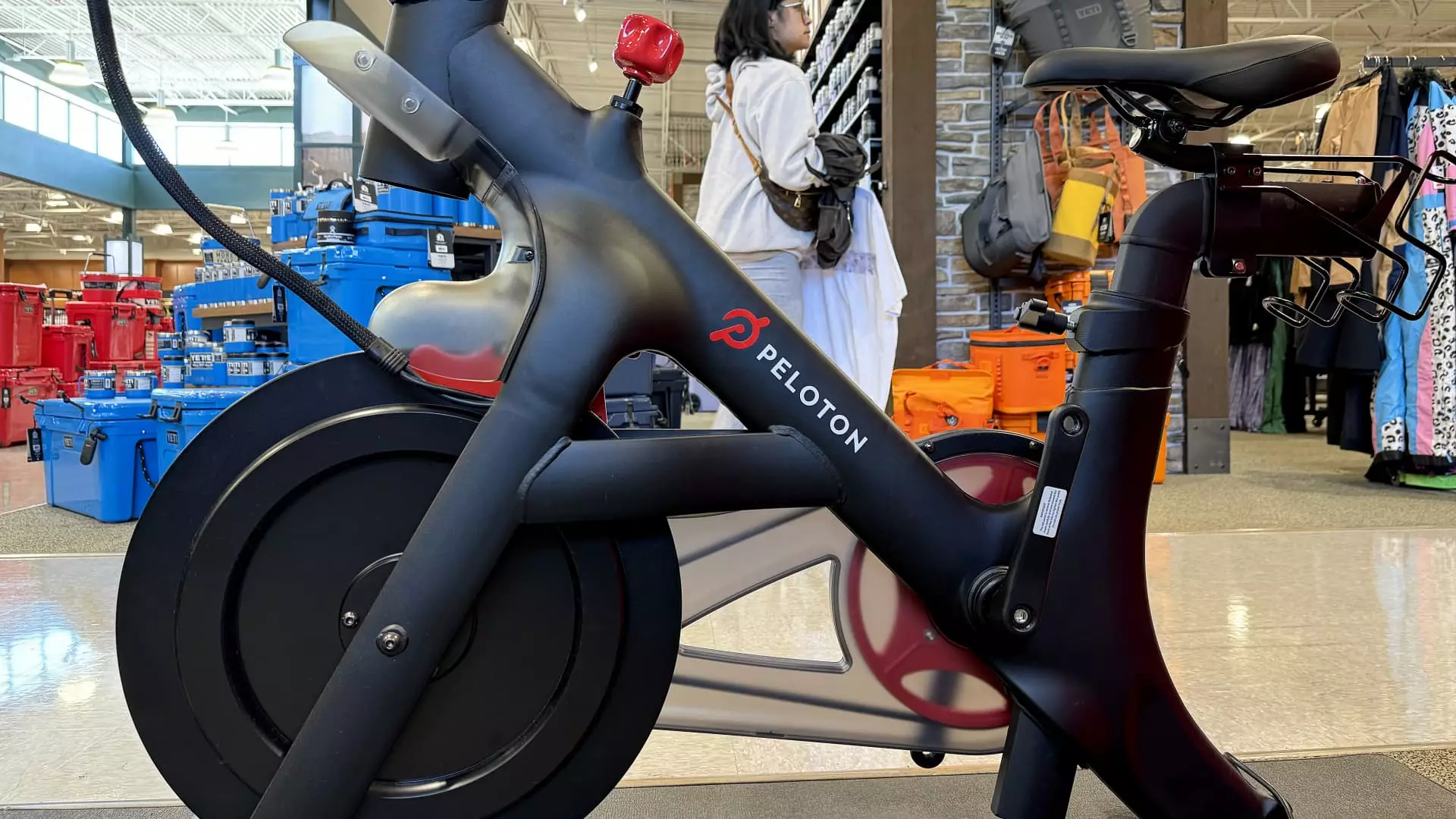In an era where sustainability and the circular economy take center stage, Peloton’s recent venture into the resale market through its platform, Repowered, raises significant questions. Instead of merely resting on its laurels, the fitness giant is challenging itself by providing a dedicated marketplace for used bikes and treadmills, cleverly capitalizing on the countless machines that have become mere dust collectors in homes across America. Yet, is this innovative platform a savvy business strategy or a sign of desperation to reclaim lost ground?
Leveraging AI for Pricing Dynamics
What sets Peloton apart in this endeavor is its integration of a generative AI tool to assist sellers in establishing fair market values for their items. While empowering users to make the final decision on their pricing, it’s intriguing to consider how much influence the AI recommendations will hold in practice. The notion that pricing can be dictated by data analysis feels both refreshing and precarious. Are we valuing human instinct or letting algorithms dictate the worth of our investment? Peloton has recognized that user engagement hinges on both perception and marketing, proposing that AI can lend credibility to the pricing process. However, reliance on technology risks undermining the charm of personal connection that often defines resale transactions.
Sharing the Wealth: What’s in It for Sellers?
For sellers, the promise of receiving 70% of the sale price is enticing, but does the financial model genuinely benefit them? While Peloton stands to bolster its revenue stream by retaining a percentage, one must ponder the long-term implications. Will this encourage a thriving community of sellers or merely create a transactional relationship where equipment dust-collecting becomes a revenue-generating hustle? The strategic discount on new equipment for sellers seems appealing, yet it could inadvertently encourage a cycle of upgrading rather than a genuine push toward sustainability. It might end up contributing to overconsumption rather than mitigating it, as users trade-in their older models for the latest versions.
Creating a Safe Environment for Exchange
Peloton’s claim that Repowered provides a “safe and comfortable” way for users to buy used equipment positions it as a leader in the resale market. But how safe—or comfortable—is it, really? The transparency offered through equipment history is undoubtedly a strong selling point. Yet, it raises concerns about the level of vetting that occurs. While protecting buyers is essential, ensuring that the resale items genuinely meet quality standards remains a pressing challenge. After all, the recent decline in subscription cancellations is likely buoyed by the utilization of peer-to-peer platforms; however, consumer trust hinges on consistently reliable experiences in any marketplace.
The Competitive Landscape: A New Era of Reselling?
Introducing Repowered places Peloton not only in competition with established platforms like Facebook Marketplace but also against niche startups such as Trade My Stuff. While Peloton’s clout provides an undeniable competitive edge, the dynamics of community-based resale culture should not be underestimated. A company-centric approach risks stripping the warmth and connection of local exchanges, which have historically defined the resale spirit. The landscape is shifting rapidly, forcing Peloton to tread lightly among its competitors while solidifying its own identity in this thriving market. The move to launch initially in cities like New York, Boston, and Washington, D.C., reveals a calculated strategy to build a robust user base, but scaling this beyond urban centers raises valid concerns about accessibility and affordability.
The Road Ahead: A Double-Edged Sword
Ultimately, Peloton’s foray into used equipment sales represents a calculated gamble as it seeks to rejuvenate its growth trajectory. With the company’s financial struggles becoming more evident, Repowered emerges as an innovative solution to a pressing problem: how to monetize previously sold equipment while attracting a new demographic. However, the broader implications remain troubling. The push for monthly subscriptions may lead users to focus more on short-term gains rather than a long-lasting commitment to physical fitness. Moreover, will this fundamentally change our perception of what it means to invest in fitness? Instead of a community built around commitment to personal health, will we devolve into a culture reliant on convenience and cyclical consumption? Peloton faces a pivotal juncture, balancing innovation with the potentially adverse consequences of a consumerist mindset.

